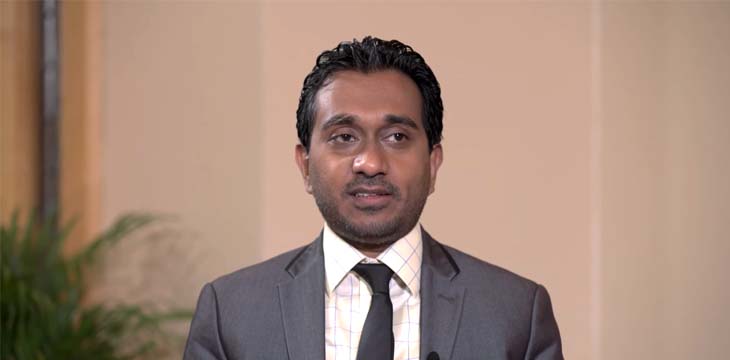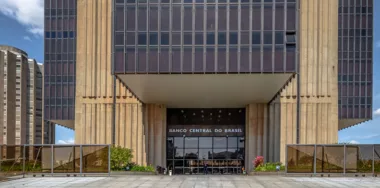CoinGeek’s Patrick Thompson recently interviewed Antonio Brasse and Chad Anderson of BlockQuake. The pair shed light on what it’s like to run a regulated exchange in New York state and why consumer protection is at the forefront of their decision-making process.
Introducing the guests
Antonio Brasse is the CEO and co-founder of BlockQuake. He has a background in financial services, banking, and other related industries, so he’s well aware of New York regulations and how to navigate them.
Chad Anderson is an advisor and part owner of BlockQuake. He’s a serial entrepreneur, was involved in MySpace in the early days, and helps companies raise capital.
What are the benefits of an on-chain capital raise versus traditional means such as turning to venture capitalists?
Thompson begins by asking the pair about the benefits of raising capital on the blockchain as they have done.
Brasse answers this question without hesitation; raising capital on-chain gives you more control over the vision and direction of your company. In his view, venture capitalists often don’t care about the mission, and it’s easy to lose control of the direction your company takes when you accept funds from them. Raising capital on-chain helps founders maintain control while giving everyday investors a stake in new companies.
Have current global events and worries about macroeconomic conditions impacted BlockQuake?
Anderson says that they have not. He tells us that BlockQuake raised much of its capital ($2 million) during the previous digital currency bear market. For him and his team, this bear market is business as usual. He tells us that they continue to focus on maximizing the value of every dollar they invest, and therefore, they haven’t been badly affected. He says that exchanges are like those who sold picks and axes during the California gold rush; they make money from fees and not necessarily from the digital currencies themselves, so price fluctuations aren’t much of a worry.
What’s it like to be headquartered in New York, given the strict regulations and compliance requirements in the state?
Brasse once again tells us that this is business as usual. He says he has always worked in New York, so he’s well used to navigating the state’s myriad of regulations. He reminds us that existing regulations still apply, and for him, navigating the new ones won’t be an issue.
Thompson asks whether Brasse thinks regulations are good for the industry. He answers in the affirmative; they are. He reminds us that for mass adoption of digital currencies and tokens to become a reality, consumers need to feel safe. Exchanges and others must be regulated to build the necessary trust for widespread adoption to occur.
What issues has BlockQuake had to overcome along the way?
Anderson answers that security has always been something they’ve focused on. He states that funds need to be safe in both wallets and on exchanges. He notes that many exchanges have weak security measures such as 2 factor authentication (2FA) via text messages and how SIM cloning can easily bypass this. He states that BlockQuake will not use these security measures and will require 2FA via a proper authenticator app, among other measures.
Drilling down on the point of security and consumer protection, Brasse points out that the majority of exchanges are based offshore, and oftentimes, users don’t even know who owns them. For this reason, it’s easy for owners to abscond with users’ funds.
There have been multiple trends in the recent history of the digital currency industry: ICOs, Defi summer, and IDOs. Are there any such patterns in the exchange business?
Brasse says that all of the above are ways to attempt to avoid regulations, raise capital illegally, and stay one step ahead of regulators by rebranding the same old schemes as something new. He believes this will eventually stop as regulations get to grips with the industry.
Anderson points to the decentralized exchanges trend. He reminds us that they’re not at the forefront of technology as they try to be and often offer a subpar user experience with stuck transactions, high fees, and other annoyances being common features. In his view, centralized exchanges are here to stay, and the safer ones, those being the regulated ones, will win out.
How does BlockQuake decide what coins to list?
Brasse says they are still fine-tuning the process and that, ultimately, New York state will have to approve it. He believes that if exchanges had to go through such a process for every digital token they list, disasters like the UST algorithmic stablecoin would never have been listed on most of them.
Thompson picks up on this point and asks how something like the UST/LUNA crash impacts the exchanges involved. Brasse answers that it depends on the exchange; some act as market makers, in which case they could end up in a lot of financial trouble and even bankruptcy, while others, such as BlockQuake, don’t market make, so the trades are guaranteed to be honored even when black swan events occur.
If you could leave viewers with one general takeaway about BlockQuake, what would it be?
Brasse says that consumer protection is the number one thing BlockQuake is focused on. He emphasizes that it offers a safe trading experience in a regulated environment.
Anderson points to the social good the exchange wants to do. He says that Brasse has a “heart of gold” and wants to use a portion of the exchange’s profits to support both local and global causes.
Watch: BSV Global Blockchain Convention panel, The Future of Digital Asset Exchanges & Investment
New to blockchain? Check out CoinGeek’s Blockchain for Beginners section, the ultimate resource guide to learn more about blockchain technology.










